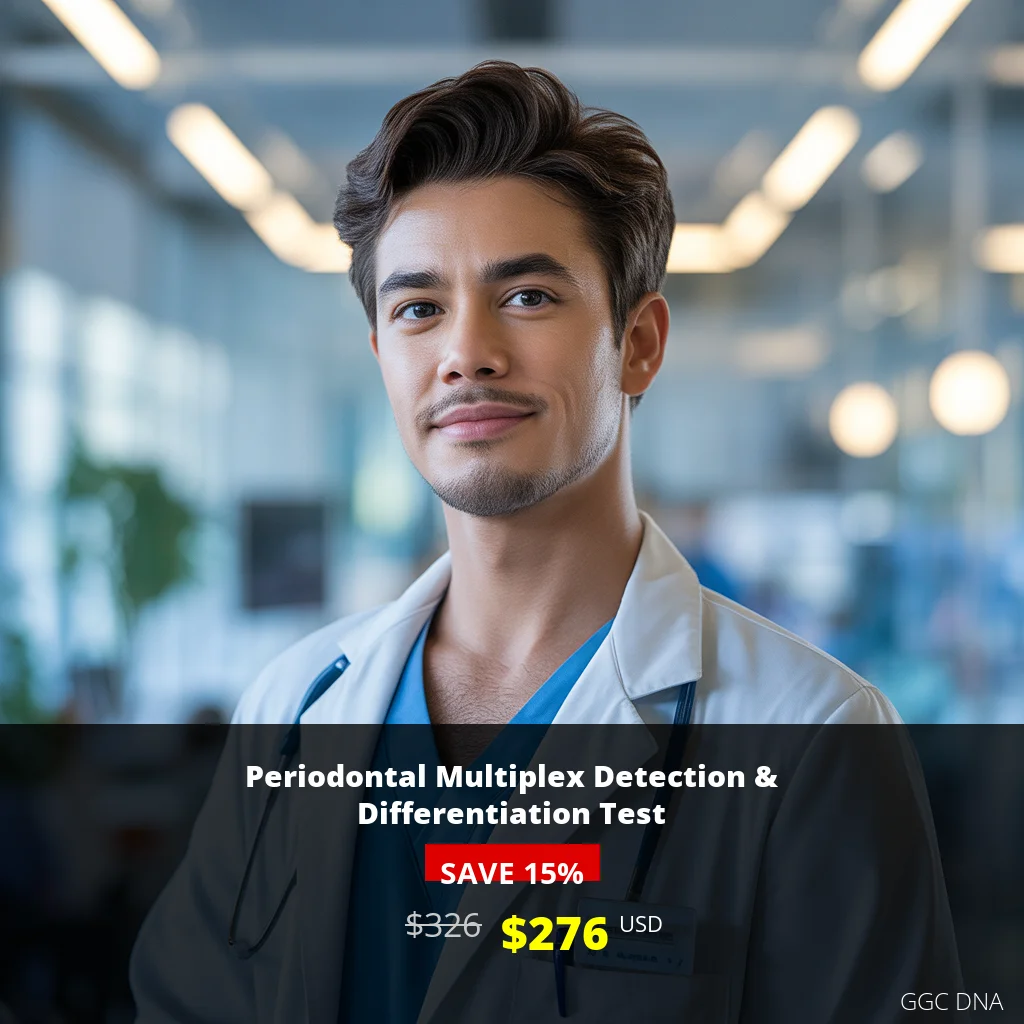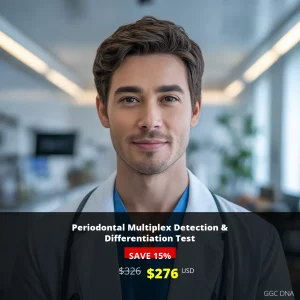Periodontal Multiplex Detection & Differentiation Test
Comprehensive Periodontal Pathogen Detection for Optimal Oral Health
The Periodontal Multiplex Detection & Differentiation Test represents a breakthrough in dental diagnostics, utilizing cutting-edge molecular technology to identify the specific bacterial pathogens responsible for periodontal disease. This advanced test employs Real-Time Reverse Transcription Polymerase Chain Reaction (RT-PCR) methodology to detect RNA from four key periodontal pathogens, providing unprecedented accuracy in diagnosing active gum infections.
What This Revolutionary Test Measures
Our multiplex detection system specifically targets and differentiates between four critical periodontal pathogens:
- Porphyromonas gingivalis – Primary pathogen associated with chronic periodontitis
- Treponema denticola – Spirochete bacterium linked to tissue destruction
- Tannerella forsythia – Key contributor to periodontal inflammation
- Fusobacterium nucleatum – Bridge organism facilitating bacterial colonization
Who Should Consider This Advanced Diagnostic Test
This comprehensive periodontal assessment is particularly recommended for individuals experiencing:
- Persistent gum bleeding during brushing or flossing
- Chronic bad breath (halitosis) that doesn’t resolve with oral hygiene
- Gum recession or pocket formation
- Tooth mobility or shifting
- Family history of periodontal disease
- Previous periodontal treatment with recurring symptoms
- Systemic health conditions like diabetes or cardiovascular disease
- Smokers or tobacco users concerned about oral health
Significant Benefits of Periodontal Pathogen Testing
Choosing our multiplex detection test provides numerous advantages for your oral health management:
- Precise Diagnosis: Identifies specific pathogens rather than relying on general symptoms
- Targeted Treatment: Enables customized antibiotic and therapeutic approaches
- Early Intervention: Detects pathogens before significant tissue damage occurs
- Treatment Monitoring: Tracks effectiveness of periodontal therapy
- Risk Assessment: Identifies individuals at high risk for disease progression
- Systemic Health Connection: Recognizes oral-systemic health relationships
Understanding Your Test Results
Your test results will provide clear qualitative detection for each of the four periodontal pathogens:
- Positive Detection: Indicates active presence of the specific pathogen, requiring targeted treatment
- Negative Detection: Suggests absence of the pathogen in the tested sample
- Multiple Positives: May indicate more complex periodontal infection requiring comprehensive management
- Single Positive: Allows for focused treatment on the identified pathogen
Our dental specialists will provide detailed interpretation of your results and create a personalized treatment plan based on your specific pathogen profile.
Test Pricing and Availability
| Price Type | Amount (USD) |
|---|---|
| Discount Price | $276 |
| Regular Price | $326 |
Nationwide Accessibility
We proudly serve patients across the United States with convenient testing locations in all major metropolitan areas including New York, Los Angeles, Chicago, Houston, Phoenix, Philadelphia, San Antonio, San Diego, Dallas, San Jose, and many more. Our network of certified dental professionals ensures you receive the highest quality care regardless of your location.
Take Control of Your Oral Health Today
Don’t let periodontal disease compromise your smile and overall health. Our Periodontal Multiplex Detection & Differentiation Test provides the comprehensive insights needed for effective treatment and long-term oral health maintenance. With rapid turnaround times of 36-48 hours for phone results and 48 hours for email delivery, you can quickly obtain the information necessary for informed dental care decisions.
Ready to uncover the specific causes of your periodontal concerns? Call us now at +1(267) 388-9828 to schedule your test or book online through our secure patient portal. Our knowledgeable staff is available to answer your questions and guide you through the testing process.
Sample collection is simple and non-invasive, requiring only saliva, scrapings from deep tooth pockets, inflamed gum tissue, or dental plaque. Remember to bring any relevant clinical history and be prepared to sign our consent document during your visit.



